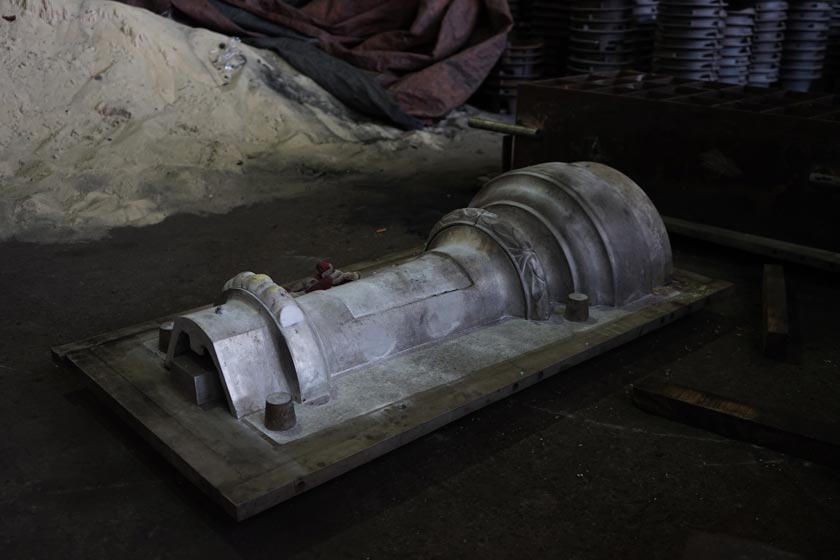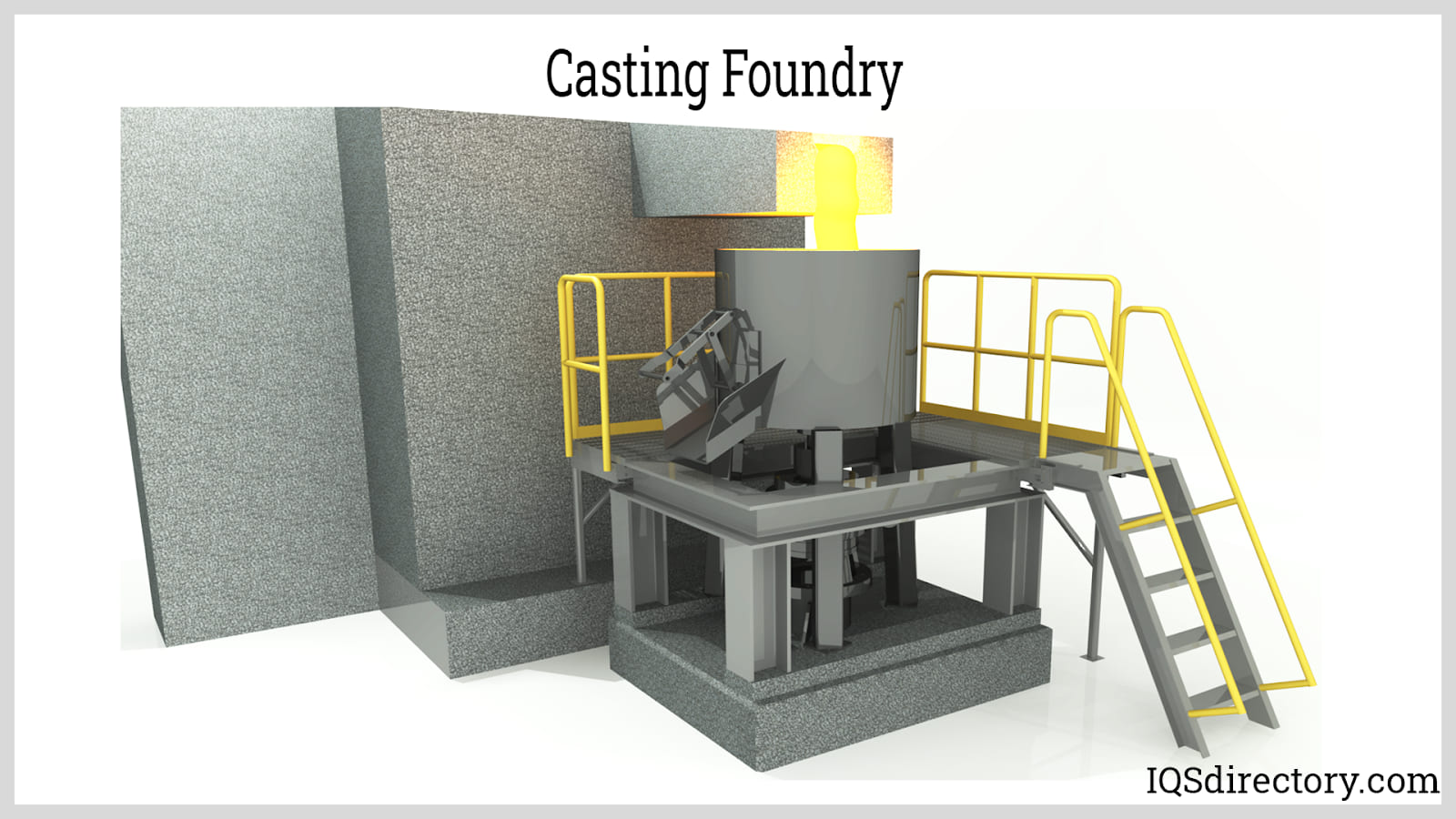Recognizing the Advantages and Innovations in the Aluminum Foundry Industry
The Aluminum Foundry sector plays a crucial duty in contemporary manufacturing. Its lightweight properties notably boost gas performance, particularly in vehicle and aerospace industries. In addition, Aluminum's resistance to rust assurances longevity in numerous applications. As the sector progresses, innovations such as advanced recycling and additive manufacturing are improving production approaches. Exploring these innovations exposes not only the advantages yet also the difficulties ahead for Aluminum factories in a swiftly transforming market.
The Lightweight Advantage of Aluminum
Aluminum's light-weight nature supplies considerable benefits across different markets, specifically in manufacturing and transport. Its reduced thickness permits the production of parts that are less complicated to take care of and mount, causing minimized labor costs and boosted efficiency. In the auto field, lighter lorries add to improved gas economic situation and reduced discharges, straightening with international sustainability goals. In aerospace, the use of Aluminum reduces the general weight of aircraft, which is vital for improving performance and decreasing functional expenses.
Furthermore, Aluminum's light-weight residential properties assist in innovative designs that were formerly impossible with larger products. This flexibility makes it possible for producers to produce complicated shapes and structures while preserving architectural stability. Overall, the light-weight benefit of Aluminum not only enhances product efficiency however additionally drives innovations in technology and layout, making it a recommended product in numerous applications.
Rust Resistance and Longevity
The Aluminum Foundry industry is renowned for generating materials with superior rust resistance, making them suitable for different applications. This building, integrated with boosted structural integrity, adds to the durable performance benefits that Aluminum elements provide. Consequently, industries progressively rely upon Aluminum to fulfill demanding ecological problems without compromising high quality.
Superior Corrosion Resistance
While different steels face substantial difficulties from ecological elements, Aluminum stands apart for its premium corrosion resistance, making it a favored choice in several applications. This property is mostly because of an all-natural oxide layer that develops on the Aluminum surface area, providing an obstacle against moisture and destructive agents. Unlike various other steels that may corrosion or degrade over time, Aluminum keeps its honesty even in rough settings, such as industrial settings or seaside areas. In addition, its light-weight nature integrated with deterioration resistance makes it suitable for applications in aerospace, auto, and aquatic sectors. Generally, Aluminum's outstanding longevity not only boosts product long life yet also minimizes maintenance expenses, offering an engaging advantage for consumers and makers alike.
Boosted Structural Honesty
Engineers and designers significantly acknowledge the relevance of improved structural honesty in modern applications, where both deterioration resistance and toughness are important. Aluminum alloys, known for their light-weight residential or commercial properties, also display phenomenal resistance to corrosion, making them appropriate for rough environments. The cutting-edge strategies used in the Aluminum Foundry sector contribute considerably to generating parts with enhanced sturdiness. Advanced casting processes and alloy make-ups are customized to satisfy certain efficiency demands, ensuring that structures can withstand extreme conditions without endangering stability. Furthermore, surface area treatments and finishes enhance the lifespan of Aluminum products, better alleviating wear and tear gradually. This focus on boosted architectural stability not just extends the functionality of products however additionally lowers upkeep costs, solidifying Aluminum's position as a material of selection in different industries.
Long-lasting Performance Advantages
Long-lasting efficiency in Aluminum components is mainly credited to their premium corrosion resistance and resilience. Unlike numerous steels, Aluminum normally creates a protective oxide layer, which prevents corrosion and wear and tear in numerous atmospheres, including industrial and marine settings. This fundamental home substantially prolongs the lifespan of Aluminum products, minimizing maintenance and substitute expenses. On top of that, the lightweight nature of Aluminum enhances its applicability across sectors without jeopardizing strength. The material's resistance to wear and tear likewise contributes to its dependability in requiring applications, making it an ideal option for vehicle, aerospace, and building and construction markets. As markets significantly focus on sustainability and longevity, Aluminum's performance advantages straighten with modern-day engineering requirements, strengthening its duty in innovative production procedures.
Ecological Impact and Sustainability
 As the Aluminum Foundry sector advances, it progressively prioritizes ecological impact and sustainability, acknowledging the requirement for responsible techniques despite climate change. Efforts to reduce waste and energy intake go to the leading edge, with numerous shops adopting reusing campaigns to reclaim Aluminum scrap. This not just reduces raw product use yet also significantly reduces down energy expenditure, as recycled Aluminum calls for only a portion of the energy contrasted to primary production.
As the Aluminum Foundry sector advances, it progressively prioritizes ecological impact and sustainability, acknowledging the requirement for responsible techniques despite climate change. Efforts to reduce waste and energy intake go to the leading edge, with numerous shops adopting reusing campaigns to reclaim Aluminum scrap. This not just reduces raw product use yet also significantly reduces down energy expenditure, as recycled Aluminum calls for only a portion of the energy contrasted to primary production.Furthermore, developments in exhausts control technologies are being executed to reduce air toxins, straightening operations with more stringent ecological guidelines. Foundries are likewise checking out alternate energy sources, such as solar and wind, to power their facilities sustainably. By cultivating collaboration with stakeholders, the market aims to create innovative options moved here that enhance environmental stewardship. Collectively, these campaigns highlight a dedication to reducing the Aluminum Foundry's carbon footprint while advertising a circular economic situation within the production field.
Advanced Manufacturing Techniques
 Reinventing manufacturing procedures, the Aluminum Foundry industry is increasingly incorporating sophisticated manufacturing strategies to improve performance and precision. Techniques such as computer system numerical control (CNC) machining and additive production have arised as crucial elements in maximizing production operations. CNC machining permits for high-precision component construction, significantly lowering product waste and manufacturing time. Additive production opens up new opportunities for intricate geometries and lightweight styles that were formerly tough to attain.
Reinventing manufacturing procedures, the Aluminum Foundry industry is increasingly incorporating sophisticated manufacturing strategies to improve performance and precision. Techniques such as computer system numerical control (CNC) machining and additive production have arised as crucial elements in maximizing production operations. CNC machining permits for high-precision component construction, significantly lowering product waste and manufacturing time. Additive production opens up new opportunities for intricate geometries and lightweight styles that were formerly tough to attain.Additionally, the implementation of automation and robotics in Aluminum shops streamlines procedures, reduces human mistake, and enhances employee safety. These innovations facilitate a more responsive manufacturing environment, making it possible for producers to adjust promptly to market needs. The assimilation of advanced simulation software application additionally boosts the style and screening stages, causing superior item quality. Jointly, these techniques not only boost operational efficiency but also foster innovation, positioning the Aluminum Foundry market at the leading edge of contemporary manufacturing.
Advancements in Reusing Procedures
The Aluminum Foundry market is not only advancing in manufacturing strategies however is also making significant strides in reusing processes. Developments are emerging to improve the performance of reusing techniques, lowering power usage and improving sustainability. Advanced arranging modern technologies, such as automated optical sorting, enable the recognition and separation of Aluminum from various other materials with high precision. This brings about a greater high quality of recycled Aluminum, which is necessary for keeping the stability of the end products.
Furthermore, closed-loop recycling systems are being carried out, enabling manufacturers to reuse Aluminum scrap within their very own manufacturing processes. This reduces waste and advertises a circular economic climate. In addition, study into brand-new recycling methods, such as hydrometallurgical procedures, offers the capacity for recovering Aluminum from complicated waste streams. These developments not just add to minimizing the carbon footprint of the Aluminum Foundry market yet also reinforce its financial practicality in a progressively ecologically aware market.
Applications Across Different Industries
Various sectors are increasingly acknowledging the convenience and benefits of Aluminum Foundry products, resulting in prevalent applications across industries such as vehicle, aerospace, building and construction, and consumer goods. In the automobile market, Aluminum spreadings add to lightweight automobile layouts, enhancing fuel efficiency and performance. Aerospace producers use Aluminum elements for their strength-to-weight ratio, vital for aircraft frameworks and elements.
In construction, Aluminum is favored additional hints for its toughness and resistance to deterioration, making it suitable for home window structures, roof covering, and architectural assistances. Consumer goods also take advantage of Aluminum Foundry items, as seen in cookware, electronics, and packaging, where lightweight and recyclable products are important.
The versatility of Aluminum Foundry methods enables for specific specs and complex layouts, accommodating the varied requirements of these industries. Therefore, Aluminum Foundry products are coming to be indispensable to modern-day manufacturing processes across numerous fields.
Future Patterns in Aluminum Foundries
As industries continue to evolve, Aluminum shops are poised to embrace numerous vital patterns that promise to boost performance and sustainability. One noticeable pattern is the enhancing fostering of digital technologies, including automation and expert system, which streamline operations and enhance quality assurance. In addition, the push in the direction of sustainable methods is leading foundries to spend in recycling modern technologies, substantially decreasing waste and power usage.
 An additional emerging trend is the usage of advanced alloys and products, providing to the expanding demand for lightweight and sturdy components across different sectors (Aluminum Foundry). Additionally, the assimilation of additive manufacturing methods is prepared for to revolutionize part style, supplying customization and minimizing preparations
An additional emerging trend is the usage of advanced alloys and products, providing to the expanding demand for lightweight and sturdy components across different sectors (Aluminum Foundry). Additionally, the assimilation of additive manufacturing methods is prepared for to revolutionize part style, supplying customization and minimizing preparationsPartnership you could try here with research study institutions is also expected to drive development, as factories seek to establish brand-new procedures and products. Aluminum Foundry. Jointly, these patterns suggest a transformative future for the Aluminum Foundry sector, straightening with more comprehensive objectives of sustainability and effectiveness
Regularly Asked Inquiries
What Are the Regular Prices Associated With Aluminum Foundry Manufacturing?
The normal expenses associated with Aluminum Foundry production consist of basic materials, labor, energy, devices upkeep, and overhead costs. These variables jointly influence the general monetary investment required for efficient Aluminum spreading operations.
Just How Does Aluminum Compare to Other Metals in Toughness?
Aluminum, while lighter than lots of steels, displays excellent strength-to-weight ratios. Compared to steel, Aluminum is much less solid however provides outstanding corrosion resistance, making it a favorable choice in applications where weight and sturdiness are vital.
What Precaution Are in Area in Aluminum Foundries?
Security steps in Aluminum shops normally consist of necessary personal safety equipment, air flow systems to manage fumes, normal devices maintenance, training programs for staff members, and adherence to strict safety guidelines to reduce threats linked with molten steel handling.
Exactly How Is Top Quality Control Managed in Aluminum Casting Processes?
Quality control in Aluminum spreading procedures entails extensive evaluations at various phases, including basic material assessment, procedure monitoring, and end product screening. Techniques such as statistical process control and non-destructive testing warranty adherence to industry requirements.
What Certifications Are Important for Aluminum Foundry Vendors?
The importance of accreditations for Aluminum Foundry suppliers includes ISO 9001 for high quality administration, ISO 14001 for ecological management, and industry-specific requirements like ASTM and SAE, making certain compliance, security, and dependability in making procedures.
The Aluminum Foundry industry plays a crucial duty in contemporary manufacturing. The Aluminum Foundry industry is renowned for generating products with superior rust resistance, making them perfect for different applications. Changing manufacturing processes, the Aluminum Foundry market is significantly integrating advanced manufacturing strategies to boost performance and accuracy. The Aluminum Foundry sector is not just progressing in making techniques but is also making significant strides in recycling procedures. As sectors proceed to evolve, Aluminum foundries are poised to accept several vital patterns that guarantee to enhance efficiency and sustainability.